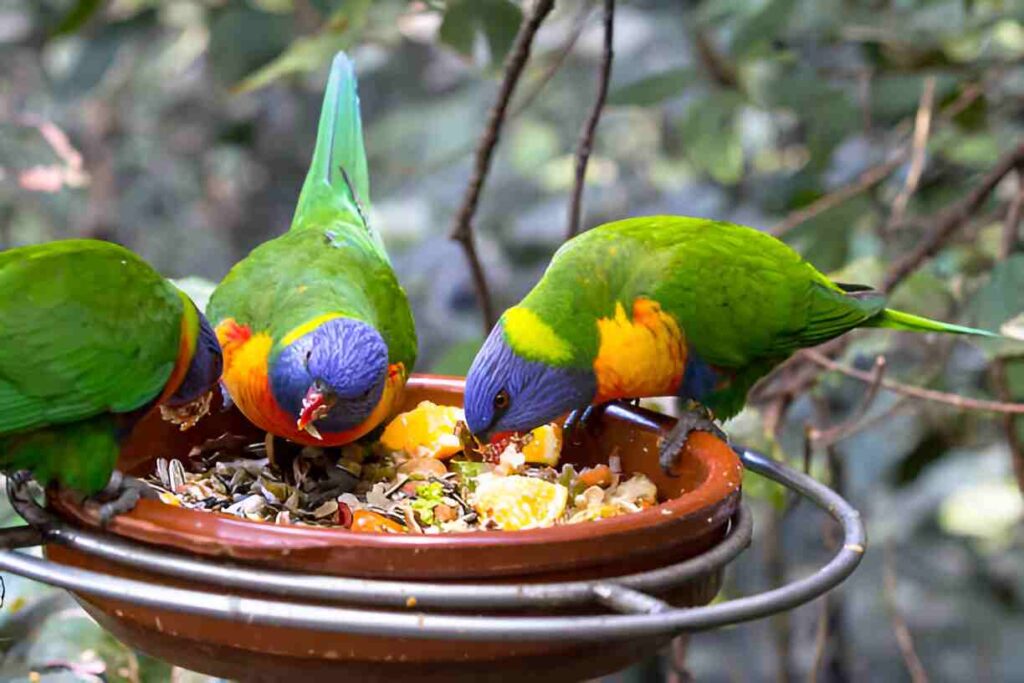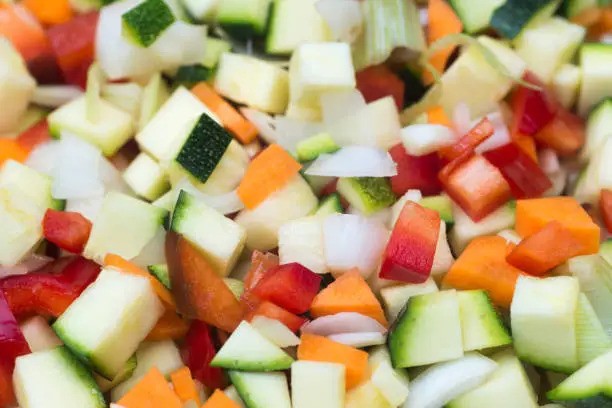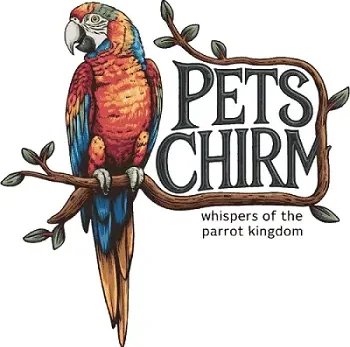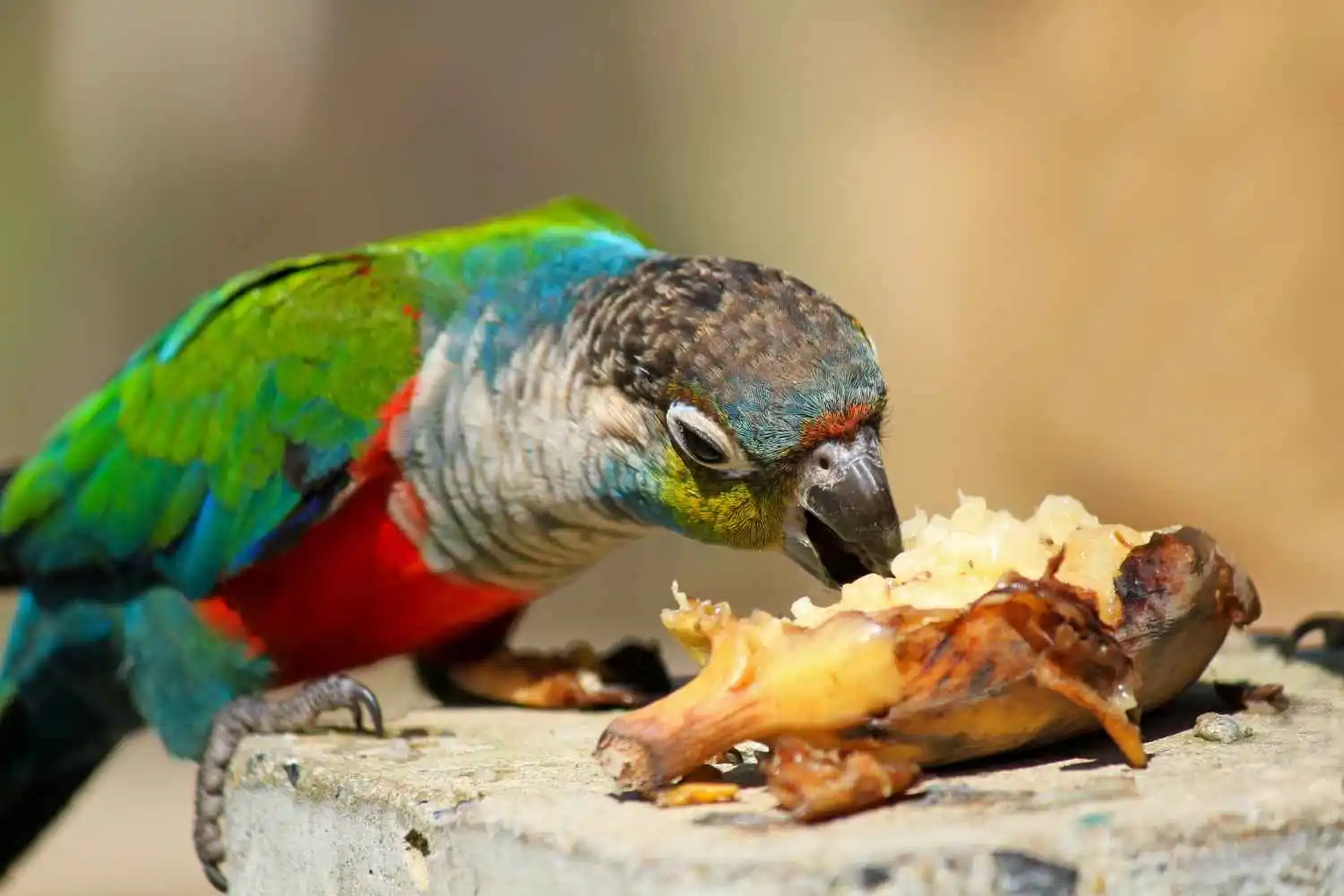Parrots are vibrant, intelligent catcalls that thrive on a well-rounded and nutritional diet. Whether you are a first-time parrot proprietor or an educated raspberry nut, understanding the rudiments of a pantomimist’s diet is pivotal to icing a long and healthy life for your featherlight friend. In this companion, we’ll explore what parrots eat, covering everything from balanced nutrition to safe foods and practical feeding tips.
Introduction to Parrot Diets
A pantomimist’s diet in the wild is different, covering a wide range of fruits, vegetables, nuts, seeds, and occasional insects. In prison, it’s still up to you to give this variety. Feeding your parrots with the correct balance of food groups supports their vibrant feathers and sportful energy and contributes to their life.
A diet lacking in essential nutrients can lead to health issues, including malnutrition, rotundity, and vitamin scarcity. Let’s look at the balanced nutritive requirements of parrots to understand how to make stylish choices for your pet.
Balanced Nutritional Needs for Parrots
1. Carbohydrates and Fiber Carbohydrates are vital for parrots as they give energy. Fiber, frequently set up in fruits and vegetables, aids digestion. Around 45- 60 of your pantomimist’s diet should be carbohydrates, immaculately from whole food sources.
2. Protein Protein supports muscle and feather development. Parrots bear 10- 20 protein in their diet. still, some species, like macaws, might need slightly further protein due to their size and active nature.
3. Fats Fats are essential for energy and feather health. Nuts and seeds are high in healthy fats and should be offered in temperance. Aim for about 5- 10 of your pantomimist’s diet to be fats.
4. Vitamins and Minerals Vitamins A, C, D, and E, along with minerals like calcium and phosphorus, are pivotal. Vitamin A promotes healthy sight and vulnerable function, while calcium ensures strong bones.
5. Hydration Clean, fresh water should always be available, as parrots can fluently become dehydrated, especially in warmer climates.
Fresh Fruits and Vegetables for Parrots
Fruits and vegetables give essential vitamins, minerals, and antioxidants that are important for a mime’s health.
- Fruits Offer fruits like apples, bananas, grapes, berries, oranges, and mango. They’re rich in vitamins and antioxidants, supporting immunity and feather health. Always remove seeds or recesses from fruits like apples and cherries, as they can be toxic.
- Vegetables with lush foliage like kale, spinach, and broccoli are excellent choices. Bell peppers, carrots, and sweet potatoes are also rich in vitamin A, which is salutary for vision and impunity.
When feeding fruits and vegetables, ensure they’re fresh and washed completely to remove fungicides. Limit sticky fruits and stiff vegetables as they can lead to weight gain if consumed in excess.

Seeds and Nuts
The Seeds and nuts can be a delicious treat for parrots, but they should be given in temperance.
- Seeds While seeds are frequently high in fats, they’re a good source of protein and fiber. Safe options include sunflower, safflower, pumpkin, and sesame seeds. still, feeding an each-seed diet isn’t recommended, as it lacks balanced nutrients.
- Nuts Nuts are a fantastic source of healthy fats, essential for feather and skin health. Safe nut options include almonds, walnuts, pecans, and Brazil nuts. Avoid interspersed or roasted nuts; rather, offer them raw and unsalted.
Seeds and nuts should make up only about 10- 20 of your pantomimist’s diet, as inordinate input can lead to rotundity and nutritive scarcities.
Protein Sources Suitable for Parrots
Protein is necessary for parrots, especially during growth phases, molting, or parentage. They are safe, high-protein options for parrots
- Legumes Cooked sap like lentils, chickpeas, and black sap are excellent sources of factory-grounded protein.
- Eggs Hard-boiled eggs give an excellent protein boost and are generally safe in small amounts. Just ensure they’re completely cooked.
- Cooked funk or Fish sometimes, parrots can enjoy small quantities of cooked funk or fish. Avoid seasoning and offer it straight.
Caution Always ensure protein sources are free from complements and seasonings that could harm your raspberry.
Foods Parrots Should Avoid
Certain foods can be dangerous or indeed poisonous to parrots. Avoid these to keep your parrots safe and healthy
- Avocado Contains persin, which can beget respiratory issues or indeed death in parrots.
- Caffeine and Alcohol are dangerous to catcall’ sensitive systems, affecting their heart rate and potentially leading to death.
- Chocolate Contains theobromine, which is poisonous to catcalls.
- Garlic and Onion Can lead to digestive worries and, in severe cases, blood cell damage.
High-swab and Sugary Foods Chips, delicacies, and reused foods can harm a pantomimist’s delicate digestive system.
Always double-check before introducing new foods and consult with a veterinarian if you’re doubtful about a particular food point.
Practical Feeding Tips for a Healthy Parrot
Establishing a good feeding routine and covering your parrot’s-diet can make a significant difference in its health.
- Feed a Variety of Foods gives a different blend of fruits, vegetables, grains, and proteins to meet all nutritive requirements.
- Observe Portion Control Overfeeding can lead to rotundity, especially with high-fat foods like seeds and nuts.
- Regularly Rotate Foods Parrots can be picky, so rotate different fruits and vegetables to keep refections intriguing.
- Encourage rustling Place food in a way that allows your parrots to work for its mess, stimulating its mind and furnishing a sense of natural geste.
- Clean Water Daily Fresh water is pivotal and should be changed at least once daily to ensure hydration.
| Category | Nutritional Role | Examples |
|---|---|---|
| Carbohydrates and Fiber | Energy & Digestion | Fruits, Vegetables |
| Protein | Muscle & Feather Growth | Legumes, Eggs, Small amounts of Cooked Chicken/Fish |
| Fats | Energy & Feather Health | Nuts, Seeds |
| Vitamins and Minerals | Immunity, Bone Strength | Variety of Fruits & Vegetables |
| Fresh Fruits and Vegetables | Essential Vitamins & Antioxidants | Apples, Bananas, Berries, Leafy Greens |

Conclusion
Feeding your parrots a balanced diet involves further than just furnishing seeds. A well-rounded diet of fruits, vegetables, nuts, proteins, and safe treats ensures that your parrots remain healthy, vibrant, and happy. Always introduce new foods gradationally, cover your raspberry’s responses, and consult a veterinarian for substantiated advice.
Creating a suitable diet for your parrots can take time and tolerance, but the prices are worth it. By following these guidelines, you’ll be giving your parrots the nutrition it need to thrive.
FAQs
1. Can parrots eat rice and grains?
Yes, parrots can eat rice and whole grains like quinoa, oats, and barley. They’re a good source of carbohydrates and fiber but should be given in temperance.
2. How frequently should I feed my pantomimist?
It’s stylish to feed parrots doubly a day, in the morning and evening. ensure they have a steady force of fresh fruits and vegetables alongside their regular diet.
3. Can I give my parrots citrus fruits?
Citrus fruits like oranges can be given in small quantities as they’re rich in vitamin C. Still, too important citrus can lead to stomach discomfort due to acidity.
4. Are bullets necessary for parrots?
bullets can be a precious part of a pantomimist’s diet as they’re formulated to meet essential nutritive requirements. still, they should round fresh foods and not make up the entire diet.
5. How do I know if my parrots are eating a balanced diet?
Signs of good health in parrots include vibrant feathers, bright eyes, and harmonious energy levels. However, has dull feathers, or gests weight changes, If your parrot seems sleepy.


1 thought on “What Do Parrots Eat?”